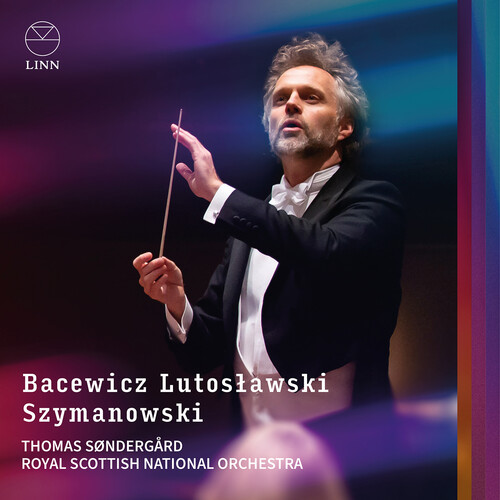Show results for
Deals
- 4K Ultra HD Sale
- Action Sale
- Alternative Rock Sale
- Anime sale
- Award Winners Sale
- Bear Family Sale
- Blu ray Sale
- Blues on Sale
- British Sale
- Classical Music Sale
- Comedy Music Sale
- Comedy Sale
- Country Sale
- Criterion Sale
- Electronic Music sale
- Fantasy Film and TV
- Folk Music Sale
- Hard Rock and Metal Sale
- Horror Sci fi Sale
- Jazz Sale
- Kids and Family Music sale
- Kids and Family Sale
- Metal Sale
- Music Video Sale
- Musicals on Sale
- Mystery Sale
- Naxos Label Sale
- Olive Films on Sale
- Page to Screen Sale
- Paramount Sale
- Pop and Power Pop
- Rap and Hip Hop Sale
- Reggae Sale
- Rock and Pop Sale
- Rock Legends
- Soul Music Sale
- TV Sale
- TV Sale
- Vinyl on Sale
- War Films and Westerns on Sale

Bacewicz, Lutoslawski & Szymanowski
- Format: CD
- Release Date: 4/4/2025

Bacewicz, Lutoslawski & Szymanowski
- Format: CD
- Release Date: 4/4/2025
- Composers: Grazyna Bacewicz, Iain Farrington, Karol Szymanowski, Witold Lutoslawski
- Label: Linn Records
- UPC: 691062075824
- Item #: 2698858X
- Genre: Classical Artists
- Release Date: 4/4/2025

Product Notes
Music Director Thomas Sondergard conducts the Royal Scottish National Orchestra in a programme showcasing three leading composers from twentieth-century Poland. Polish music was flourishing at that time, yet the country was going through unimaginable political turmoil, having to endure the Nazi and Communist occupations. Despite this, composers Szymanowski, Bacewicz and Lutoslawski reshaped Polish musical identity, each with their own language. Moving from her early neo-classical style towards something more complex, bold and colourful, Bacewicz wrote the defiant Overture for Orchestra in occupied Poland in 1943. In the sensual King Roger (1926), performed here in a new arrangement by Ian Farrington, Szymanowski blended late Romanticism with Mediterranean and Polish influences. Lutoslawski pushed Polish music beyond Romanticism, embracing folk traditions and modern techniques. His Symphony No. 3 (1983) became a powerful symbol of freedom in Poland and marked a key moment in his late symphonic style.

